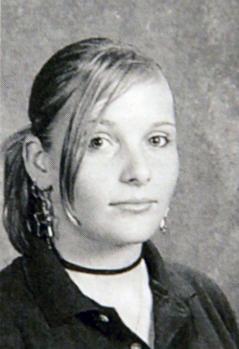|
|
|---|
Wednesday, May 25, 2011
Poppies, Taps, Honor, Death
John McCrae's "In Flanders Fields", from 1915, is still one of the most memorable war poems to ever be out on paper. I, like most people of my generation, first read this great poem as a reading assignment in school. I was very moved by it then, and it still moves me to tears every time I read it. John McCrae's poem is a lasting legacy of the horrific battle in the Ypres salient in 1915, during WWI.
Although John McCrae had been a doctor for years and had earlier served in the South African War, it was never possible for him to get used to the suffering, the screams, and the endless blood that was shed by the men and boys.. Major John McCrae believed that he had seen and heard enough in his dressing station to last him a lifetime.
Major John McCrae was a surgeon who was attached to the 1st Field Artillery Brigade. He had joined the McGill faculty in 1900, shortly after he had graduated from the University of Toronto, in Canada. He had just spent the last seventeen days treating the injured and maimed soldiers (British, Canadian, French, Indian, and German) in the Ypres salient.
Lieutenant Colonel John McCrae.
This had been an ordeal that he had hardly thought to be humanly possible. John McCrae later wrote of it: "I wish I could embody on paper some of the varied sensations of that seventeen days... Seventeen days of Hades! At the end of the first day if anyone had told us we had to spend seventeen days there, we would have folded our hands and said it could not have been done."
There was one particular death that greatly affected John McCrae. A young friend and a former student, Lieut. Alexis Helmer of Ottawa, Canada, had been killed by a shell burst on May 2, 1915. Lieutenant Helmer was buried later that day in a little cemetery outside John McCrae's dressing station. Major John McCrae had performed the funeral ceremony during the absence of the chaplain.
The next day, while he was sitting on the back of an ambulance that was parked near the dressing station, John McCrae poured out his anguish by composing a poem. Major McCrae was an expeienced writer. He had authored several medical texts as well as writing a few poems.
In the nearby cemetery, John McCrae could see the wild poppies that sprang up in the the fields and ditches in that part of Europe. He spent twenty minutes of his precious rest-time, writing the fifteen lines of verse in a notebook.
A young soldier named Cyril Allinson, watched him write it. He was a twenty-two year old Sergeant-major who was delivering mail that day when he approached John McCrae. Major McCrae glanced up as Sergeant-major Allinson approached him. He then continued writing while the sergeant-major stood there quietly. "His face was very tired but calm as we wrote," Cyril Allinson recalled. "He looked around from time to time, his eyes straying to Helmer's grave."
About five minutes later, John McCrae finished writing. He took his mail from the hands of Sergeant-major Cyril Allinson and, without saying a word, handed his note pad to the young Soldier. Cyril Allinson was moved by and approved of what he read: "The poem was exactly an exact description of the scene in front of us both. He used the word blow in that line because the poppies actually were being blown that morning by a gentle east wind. It never occurred to me at that time, that it would ever be published. It seemed to me just an exact description of the scene."
As a matter of fact, the poem was very nearly not published. John McCrae was dissatisfied with what he had penned and had tossed the poem away. Another officer retrieved the poem and sent it to newspapers in England. The "Spectator", in London, rejected it, but "Punch" published it on December 8, 1915.
by John McCrae,
May 1915
In Flanders fields the poppies blow
Between the crosses, row on row,
That mark our place; and in the sky
The larks, still bravely singing, fly
Scarce heard amid the guns below.
We are the Dead. Short days ago
We lived, felt dawn, saw sunset glow,
Loved and were loved, and now we lie
In Flanders fields.
Take up our quarrel with the foe:
To you from failing hands we throw
The torch; be yours to hold it high.
If ye break faith with us who die
We shall not sleep, though poppies grow
In Flanders fields.
Coquelicots (Flanders Field) 1890 - by Robert Vonnoh (1858 – 1933) it can be seen at the Butler, Youngstown, Ohio
*****
They Did God's Work
The following remarks were delivered on Saturday evening in Arlington, Virginia, at the Memorial Day weekend seminar and grief camp of TAPS - the Tragedy Assistance Program for Survivors, in 2006.
They Did God's Work
by Ben Stein
"...Wall Street does not have it. Hollywood does not have it. They're just in it for the fame and the money.
"Your loved ones were in it for unselfishness, for kindness, for love of one's fellow man. There is no higher meaning on this earth."
"The media try to rob your husbands' and wives' and kids' lives of meaning, saying this war is not about anything."
"They're wrong and they say what they say because they don't see the truth. They print a story on the front page about Marines killing civilians in a town in Iraq and if they did, it was wrong. But the big media never report a MARINE throwing himself on a bomb to protect an Iraqi child, or a Marine giving his life to rid a town of murderers or a Marine or an Army man or woman or a Navy Seal or a Coast Guardsman offering up his life so that Iraqi human beings can have the same freedoms and rights we take for granted here in America."
"The media are like grave robbers, robbing you of the certain knowledge that your spouses gave their lives for something deeply worthwhile: human dignity."
"Your loved ones' lives and deaths had as much meaning at the lives and deaths of every American who died for freedom from Valley Forge to the Battle of the Bulge to Cho-Sin Reservoir to the Cu Chi tunnels to the Balkans to Kabul, Afghanistan, to Falluja, Iraq."
"And if the media doesn't know it, every other American does. This is a very difficult fight, but the ordinary American knows what your loved ones have done and respects them..."
*****
Some musical pieces are able to stir up my emotions, bur, none have the effect of "Taps". Every time that I hear it played, and sometimes when I am thinking about it, my eyes tear up and my breathing becomes labored.
TAPS
The author is unknown and there are no official words to the music. Here are some of the more popular verses.
Day is done, gone the sun,
From the lake, from the hill,
From the sky.
All is well, safely rest,
God is nigh.
Thanks and praise, For our days,
’Neath the sun, ’Neath the stars,
’Neath the sky,
As we go, This we know,
God is nigh.
Fades the light; And afar
Goeth day, And the stars
Shineth bright,
Fare thee well; Day has gone,
Night is on.
Go to sleep, peaceful sleep,
May the soldier or sailor,
God keep.
On the land or the deep,
Safe in sleep.
Love, good night, Must thou go,
When the day, And the night
Need thee so?
All is well. Speedeth all
To their rest
BURY ME WITH SOLDIERS
by Unknown Author
I've played a lot of roles in life;
I've met a lot of men,
I've done a lot of things I'd like to think
I wouldn't do again.
And though I'm young, I'm old enough
To know someday I'll die.
And to think about what lies beyond,
Beside whom I would lie.
Perhaps it doesn't matter much;
Still if I had my choice,
I'd want a grave 'mongst Soldiers when
At last death quells my voice.
I'm sick of the hypocrisy
Of lectures of the wise.
I'll take the man, with all the flaws,
Who goes, though scared, and dies.
The troops I knew were commonplace
They didn't want the war;
They fought because their fathers and
Their fathers had before.
They cursed and killed and wept...
God knows they're easy to deride...
But bury me with men like these;
They faced the guns and died.
It's funny when you think of it,
The way we got along.
We'd come from different worlds
To live in one where no one belongs,
I didn't even like them all;
I'm sure they'd all agree.
Yet I would give my life for them,
I know some did for me.
So bury me with soldiers, please,
Though much maligned they be.
Yes, bury me with soldiers, for
I miss their company.
We'll not soon see their likes again;
We've had our fill of war.
But bury me with men like them
Till someone else does more.
- Author unknown
In America, as well as in several other countries, the poppy has become a representation of remembering our fallen military men and women. Next Monday is Memorial Day. At 3:00 pm, (in what ever time zone you are in) there will be a Moment Of Rememberence. We are urged to take that opportunity to stop and remember those who have made the sacrifice for us.
I try to honor and remember all of the men and women that died so that we may have peace and freedom and the veterans who suffer their whole life due to their war injuries. I also try to remember and honor everyone who has served and given a piece of themselves so that we can live in peace, and can honestly speak about our beliefs and opinions.
Monday we will remember everyone that fought (past, present and future) on our behalf. We now have the responsibility of making sure that our children and grandchildren continue to live in peace and freedom.
0 Comments:
Subscribe to:
Post Comments (Atom)






















